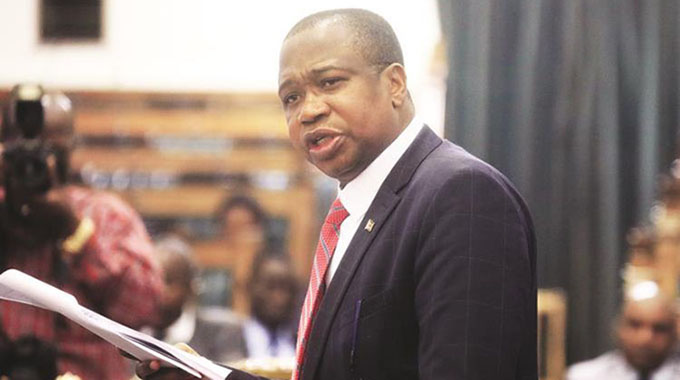Source: World Bank forecast 2,7pc growth for Zim | The Herald January 10, 2020

Golden Sibanda
The World Bank has forecast Zimbabwe’s economy to grow by 2,7 percent this year, a growth that almost tallies with Finance Minister Mthuli Ncube’s 2020 National Budget projection of 3 percent.
This follows a contraction last year.
However, shortage of foreign currency and electricity are expected to persist in 2020, and weigh down recovery of industry and services.
Minister Ncube announced an array of incentives and investments in the 2020 budget to jump-start the economy by supporting growth in mining, agriculture, industry, tourism and other productive sectors to spur growth.
This comes after natural disasters such as drought as well as tropical cyclones that struck parts of Zimbabwe last year, plunged the economy into projected negative economic growth of minus 7,5 percent.
The World Bank reckons that agriculture drove growth in some African countries while in others growth softened on decelerating external demand and lower commodity prices as well as the effect of natural disasters.
“Zimbabwe also suffered a sharp rise in inflation that continued to squeeze real incomes, resulting in a large contraction in economic activity, estimated at 7,5 percent.
“Activity has been further constrained by persistent shortages of food, fuel, electricity, and foreign exchange,” the World Bank said in its latest global report.
While the World Bank projects negative growth of 7,5 for 2019, Minister Ncube sees his projected 3 percent growth this year, reversing a 6,5 percent contraction forecast for 2019, due to the devastating effects of drought and Cyclone Idai.
In its latest outlook report, Global Economic Prospects, in which it sees the world economy expanding 2,5 percent in 2020, the World Bank forecast Zimbabwe’s gross domestic product (GDP) to grow by at least 2,7 percent this year.
Growth among advanced economies as a group is anticipated to slip to 1,4 percent in 2020, in part due to continued softness in manufacturing. Growth in emerging markets and developing economies is expected to accelerate this year to 4,1 percent.
The World Bank expects Zimbabwe to post modest, but slower growth of 2,5 in 2021, but growth to pace up at 2,8 in 2022. Zimbabwe’s forecast growth this year falls behind most African countries, but is ahead of Zambia and South Africa.
Government has already extended several fiscal incentives that will result in Treasury foregoing an estimated US$1,5 billion in potential taxes to reignite growth, but this will create new value of US$15 billion for businesses.
Minister Ncube said reforms under Transitional Stabilisation Programme (TSP) had laid the foundation for sustainable inclusive growth going forward.
Growth this year, however, is premised on the assumption of better rainfall, improved macro-economic stability from tighter fiscal and monetary policies, improved power supply and supportive tax and non-tax incentives to stimulate production.
Zimbabwe’s Treasury also expects the domestic economy to rebound on further implementation of ongoing reforms to make doing business easier and increased investment by Government and the private sector.
Key priorities of the 2020 National Budget entail enhanced productivity and growth, job creation, competitiveness, promotion of sustainable and inclusive development, export diversification as well as import substitution support by global re-engagement.
As the economy rebounds, inflation is expected to gradually decline, with the monthly rate projected at single digits from March 2020.
Inflation is thus forecast to decline further to 2 percent by 2020 year-end, on tighter control of reserve money.
COMMENTS
Zimbabwe 2.7 % growth and South Africa 1% – pamberi ne Zimbabwe comrades. We are outperforming even the great South Africa
2.7% on a base level of practically nothing, doesn’t mean anything. South Africa is a 1000 times bigger. Their 1% is 500 times more growth than Zim’s.